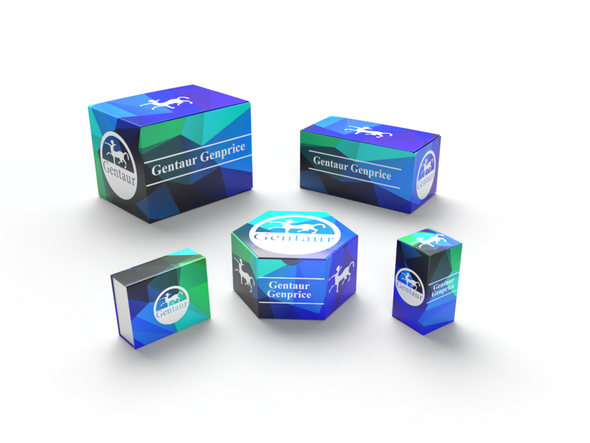740
Human Urinary bladder cancer antigen (UBC) ELISA Kit | AE12554HU
- SKU:
- 740-AE12554HU
- Availability:
- Usually ships in 5 working days
Description
Human Urinary bladder cancer antigen (UBC) ELISA Kit | AE12554HU | Gentaur UK, US & Europe Distribution
Species Reactivity: Human (Homo sapiens)
Abbreviation: UBC
Alternative Name: N/A
Application: ELISA
Range: 0.156-10 ng/mL
Sensitivity: 0.072 ng/mL
Intra-Assay: ≤5.9%
Inter-Assay: ≤8.4%
Recovery: 0, 95
Sample Type: Serum, Plasma, Other biological fluids
Detection Method: Sandwich
Analysis Method : Quantitive
Test Principale: This assay employs a two-site sandwich ELISA to quantitate UBC in samples. An antibody specific for UBC has been pre-coated onto a microplate. Standards and samples are pipetted into the wells and anyUBC present is bound by the immobilized antibody. After removing any unbound substances, a biotin-conjugated antibody specific for UBC is added to the wells. After washing, Streptavidin conjugated Horseradish Peroxidase (HRP) is added to the wells. Following a wash to remove any unbound avidin-enzyme reagent, a substrate solution is added to the wells and color develops in proportion to the amount of UBC bound in the initial step. The color development is stopped and the intensity of the color is measured.
Product Overview: The modification of proteins with ubiquitin is an important cellular mechanism for targeting abnormal or short-lived proteins for degradation. Ubiquitination involves at least three classes of enzymes: ubiquitin-activating enzymes (E1s), ubiquitin-conjugating enzymes (E2s) and ubiquitin-protein ligases (E3s) . Ubiquitin-conjugating enzyme E2 L3 is a member of the E2 ubiquitin-conjugating enzyme family. This enzyme is demonstrated to participate in the ubiquitination of p53, c-Fos, and the NF-kB precursor p105 in vitro. Two alternatively spliced transcript variants encoding distinct isoforms have been found for this gene.
Stability: The stability of ELISA kit is determined by the loss rate of activity. The loss rate of this kit is less than 5% within the expiration date under appropriate storage condition. The loss rate was determined by accelerated thermal degradation test. Keep the kit at 37°C for 4 and 7 days, and compare O.D.values of the kit kept at 37°C with that of at recommended temperature. (referring from China Biological Products Standard, which was calculated by the Arrhenius equation. For ELISA kit, 4 days storage at 37°C can be considered as 6 months at 2 - 8°C, which means 7 days at 37°C equaling 12 months at 2 - 8°C) .






